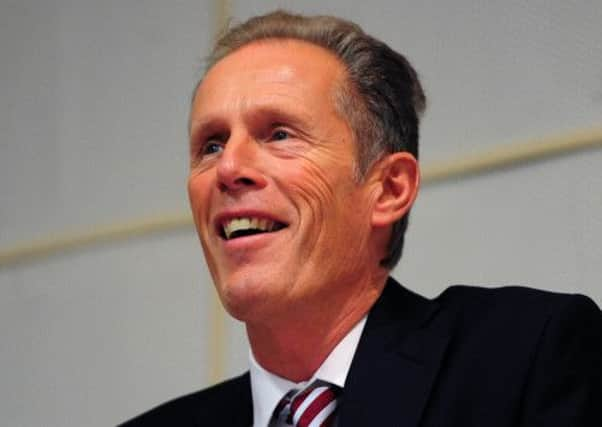Scottish independence: Yes/No spend limit fears


Both sides, along with the political parties who back them, can spend £3 million in the 16 week-restricted period before the historic poll on September 18 next year.
But a third category of campaign group - permitted participants - can operate outside the main campaign organisations or parties and spend up to £150,000. There are growing fears this could be open to abuse by both sides.
Advertisement
Hide AdAdvertisement
Hide AdYes Scotland chief executive Blair Jenkins and chairman Dennis Canavan were appearing before Holyrood’s referendum committee today, along with Blair McDougall and Craig Harrow of the pro-union Better Together campaign.
Nationalist backbencher Stewart Maxwell asked if there was a concern that “multiple, dummy” organisations could be set up by individuals backing ether side to pump in more cash if limits have been reached.
Mr Jenkins said: “I think that’s a concern and it remains to be seen whether that materialises as we move into the final part of the referendum campaign.”
He admitted there were pro-independence groups like Business for Scotland which were not part of Yes Scotland and may register as permitted participants, but said these groups may want to present a different message from the main campaign.
“Given the position that Better Together have taken on donations from other parts of the UK, there has been an encouragement from people outside Scotland to become actively and financially involved on the No side of the campaign,” Mr Jenkins added.
“I think given there’s that explicit encouragement for people who are actively against Scottish independence from other parts of the UK to get materially and financially involved in the campaign, I would be surprised if there were not organisations and entities in other parts of the UK who didn’t commit with a level of funding for the No campaign.”
The Yes side has already reached £3 million with the help of £2 million from lottery winners Colin and Chris Weir, although some of this could be spent outside the restricted period.
No campaign funding
The No campaign has also secured major donations, including £500,000 from oil magnate Ian Taylor.
Advertisement
Hide AdAdvertisement
Hide AdBut Mr McDougall said he did not “anticipate” there would be separate pro-union campaigns which are set-up as permitted participants outside the official Better Together umbrella.
He added: “In terms of concerns we have, the main one is how do you balance ensuring that dummy organisations aren’t set-up.”
This could result in existing party activists who are leading cross-party campaigns, nationally or locally “artificially taking one hat off and putting another on.”
“The spending limits have been set for the political parties within an envelope which was intended to give even footing to each side,” Mr McDougall added.
Permitted participants can be any group or individual which plans to campaign in the referendum and spend more than £10,000.
Existing rules mean that if any “co-ordination” takes place between the lead campaigns and other bodes, then the latter would be judged to be part of the main campaigns and not a separate entity, by electoral chiefs.
Mr McDougall insisted these rules are “incredibly stringent” and said it would be difficult to avoid “falling foul” of these if any kind of co-ordination came to light.